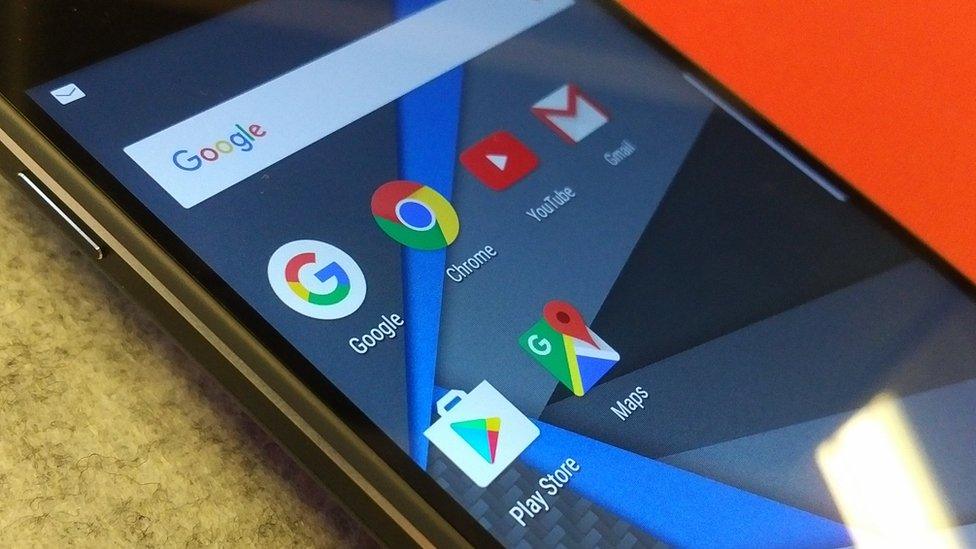Google denies Android breaks competition rules
- Published

Google has denied the way it handles its Android mobile operating system is anti-competitive.
In 2015, the European Commission said it would investigate whether Google "abused its dominant position" and "hindered the development" of rivals.
Google argued Android was a "flexible" platform that had "expanded competition" rather than hurting it.
The European Commission told the ≥…»ÀøÏ ÷ it would carefully consider Google's response before making a decision.
Reducing costs
The Android operating system is open source, with a majority of the code available for device manufacturers to take, modify and use for free.
Companies are free to take the code and develop it into their own operating system - shopping giant Amazon has done so with its Fire OS.
However, manufacturers must negotiate with Google if they wish to add Google Mobile Services (GMS), which include the popular Google Play app store, Chrome web browser and Google Search app.
The whether Google:
gave incentives to manufacturers to exclusively pre-install Google apps and services on devices
barred manufacturers from using modified or "forked" Android code if they wanted access to Google services on some of their devices
bundled apps and services with other Google products
Google faces a fine and could be required to change its practices if it is found guilty.
Antitrust rules
The search giant has not denied offering phone-makers incentives to exclusively pre-install Google apps, or that it offers Search, Chrome and the Play app store as a bundle.
But it argued:
manufacturers were never "obliged to pre-load any Google apps on an Android phone"
while anybody could "fork" Android to make their own OS, its "voluntary compatibility agreements" helped reduce the spread of incompatible devices
bundling Search, Chrome and Play allowed it to offer its suite of apps for free as opposed to charging phone-makers a fee, reducing costs for consumers
"We do offer manufacturers a suite of apps so that when you buy a new phone, you can access a familiar set of basic services," the company .
"Android's competitors - including Apple's iPhone and Microsoft's Windows phone - not only do the same, but they allow much less choice in the apps that come with their phones."
In April, Ms Vestager indicated that she believed Google had broken antitrust rules.
"Based on our investigation thus far, we believe that Google's behaviour denies consumers a wider choice of mobile apps and services and stands in the way of innovation by other players," she said.
FairSearch Europe - one of the organisations to have complained about Google's behaviour - said the company's response was "disingenuous".
"The European Commission's case against Google is vital for consumers, because four out of five smartphones sold today run on Android," it said in a statement.
The European Commission did not indicate how long it would take to reach a decision.
- Published20 April 2016
- Published15 March 2016